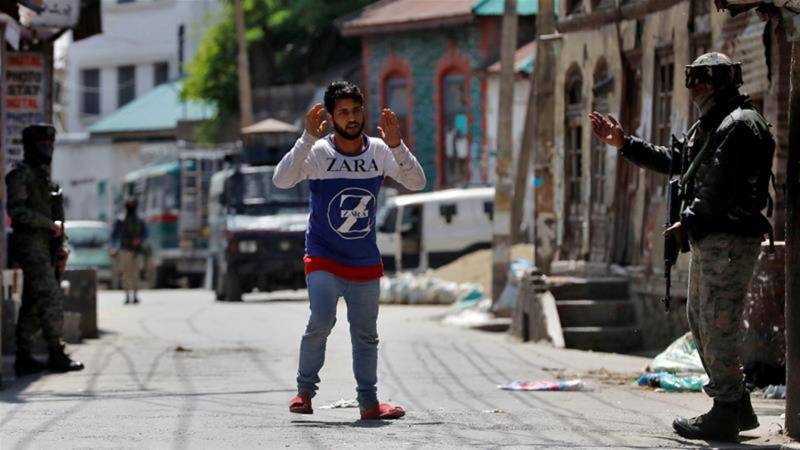ISLAMABAD - Up to 25,000 people had been granted domicile certificates in Indian Occupied Jammu and Kashmir (IOJ&K) since May 18, raising fears of the beginning of demographic changes in the Muslim-majority Himalayan region.
“The decision to provide non-Kashmiri residents with a domicile certificate is certainly the beginning of the end. This is the beginning of Kashmir becoming another Palestine,” Badar-Ul-Islam Sheikh, a 29-year-old resident of the main city of Srinagar, told the media. The certificate, a sort of citizenship right, entitles a person to residency and government jobs in the region, which till last year was reserved only for the local population.
“It is sad. It is horrible. I fear that time will come that we will not even feel safe in our homes,” Sheikh said. “We have been silenced.” According to a census conducted by India in 2011, out of 12.5 million total population, Muslims comprise 68.31 percent and Hindus 28.43 percent in Kashmir.
Article 35 (A) had barred outsiders, including Indian nationals from other states, from settling and claiming government jobs to maintain the demographic balance in the region, which had seen decades of armed rebellion against the Indian rule.
On Friday, a picture of the domicile certificate issued to Navin Kumar Choudhary, a bureaucrat originally from the Indian state of Bihar, went viral on social media.
In April this year, amid the coronavirus lockdown, the government notified domicile laws making an unspecified number of outsiders eligible for residency and jobs. According to the new law, any person who had lived in the region for 15 years, or had studied in the region for seven years and passed his class 10 or class 12 examination was eligible for domicile certificate.
Also, children of Indian government employees who had served in the state for 10 years were eligible to settle and claim local residency rights. The law applies even if the children had never lived in Kashmir. Out of 66, top bureaucrats serving in the region, 38 were outsiders belonging to other Indian states. Many other outsiders served in various central government institutions like banks, post offices telecommunication facilities, security institutions, and universities.
Khurram Parvez, a human rights activist based in Srinagar, said the move was “disastrous’ for the whole region.
“It appears government was in some kind of hurry. Within weeks so many people applied,” he told the media.
Kashmiri politicians across the divide had said the revocation of special citizenship rights was aimed at reversing the Muslim majority character of the region, which was now directly ruled from New Delhi.
The local legislature, which was directly elected by the people, was suspended in the wake of the scrapping of Article 370 last year.
“All our misgivings about the new domicile rules in J&K are coming to the fore,” tweeted Omar Abdullah, the former chief minister of Jammu and Kashmir, which was earlier a state and now a federally administered region.
Omar was jailed following the removal of the region’s autonomy in August last year along with most prominent Kashmiri leaders who opposed the stripping of the region’s special status by the Hindu nationalist government of Prime Minister (PM) Narendra Modi. He was released almost eight months later, in March.
Speaking on the condition of anonymity, a government official said, since May 18, when the rules were notified, 33,000 people had applied for the domicile certificates. Out of them, 25,000 people had been granted residency rights, he said.
As many as 32,000 applications were filed in 10 districts of the Hindu majority Jammu region in the south. The highest number of 8,500 certificates had been issued in the Doda district, which had a delicate demographic balance, with Muslims comprising 53.81 percent and Hindus 45.76 percent.
Up to 6,213 domicile certificates had been issued in Rajouri district, which had 62.71 percent Muslim population. Authorities had distributed 6,123 residency certificates in Poonch, a border district comprising 90.44 percent Muslim population.
In the Kashmir region, which was about 96.4 percent Muslim population, 435 certificates had been issued so far, out of the total 720 applications.
According to several human rights organisations, thousands of people had been killed since 1989, when India sent tens of thousands of troops to the region to quell the armed rebellion.






